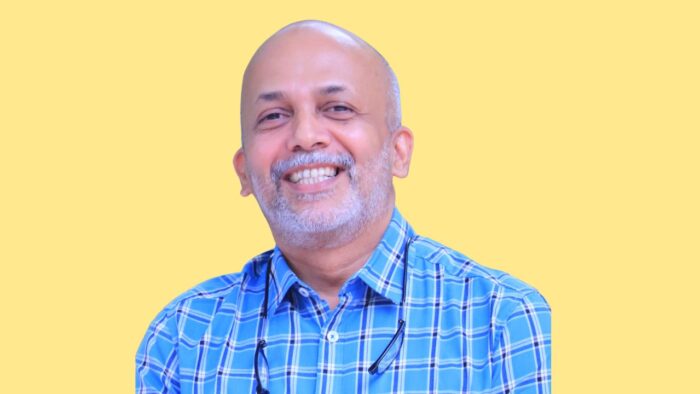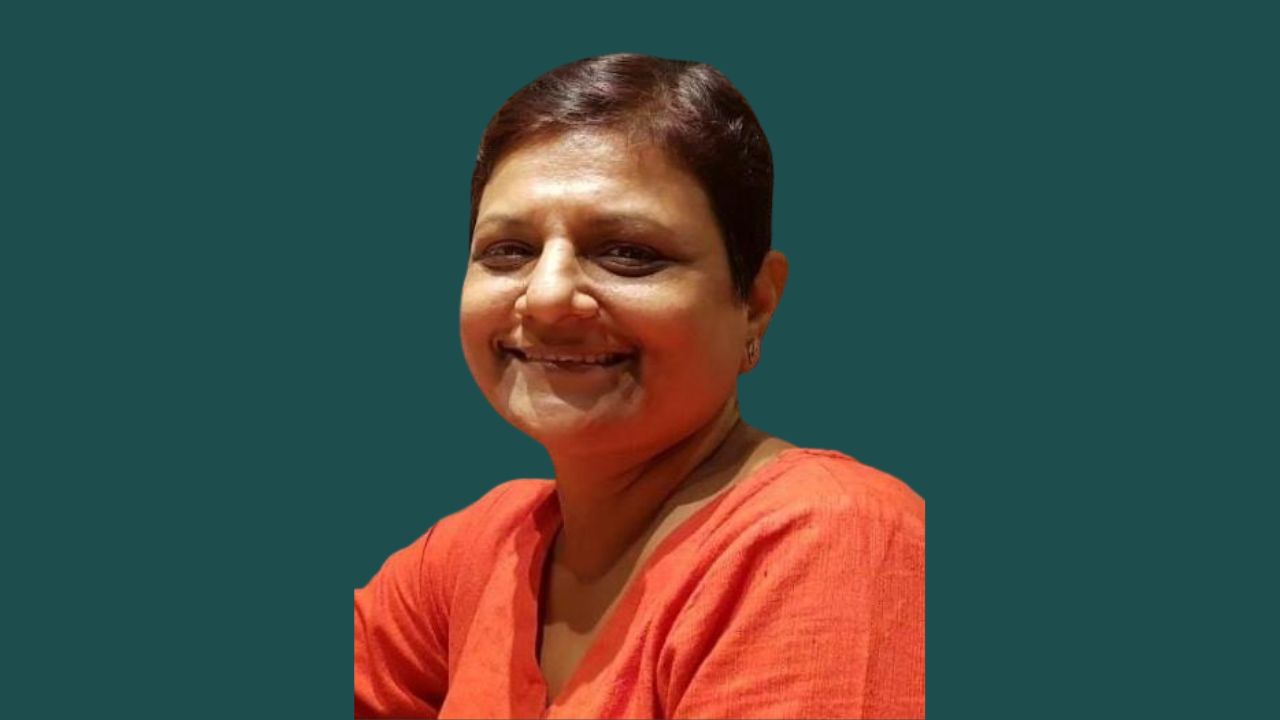Dr U. Indulal’s initiation into Ayurveda wasn’t because of the science itself, but rather because of where and how he got to learn it. When he was studying in standard seven, he read an article in a Malayalam daily about a unique Ayurveda college and curriculum, and the Gurukula was situated near the forests and foothills of the Western Ghats. He calls his decision to study there, “the best and only mature — decision I took,” and after school, he attended the Coimbatore Ayurveda College, run by Dr P R Krishna Kumar and The Arya Vaidya Pharmacy (Coimbatore) Ltd, to study Ayurveda for seven-and-a-half years — including two years of Pre-Ayurveda (instead of Pre-degree). He then worked for The Arya Vaidya Pharmacy (AVP) for 25 years and at present, he is the Chief Editor of Abhinava Dhanvantari, a journal of Ayurveda published by PNNM Ayurveda College, Shoranur, Kerala; he is the Executive Director – Operations, Akami Ayurveda Hospital & Research Center, Kerala; and he is also the Dean, Academics of Swiss Med School, Geneva, Switzerland. In conversation with the Center for Ayurveda Studies…
Sophia: Tell us how your journey to Ayurveda and spiritual practices began?
Dr Indulal: The journey with Ayurveda started early in life — not because I had an Ayurveda tradition to follow. In 1983, I read an article in a Malayalam daily about a unique Ayurveda college and curriculum. I was a student of 7th standard. Though I never dreamt of a medical profession, especially as an Ayurveda vaidya, the situation in life at that time made me feel strongly that this place and course are meant for me. It was not the science as such that interested me. It was the place, near the forests and foothills of the Western Ghats and the Gurukula lifestyle mentioned in the article that attracted me. I am happy that the major — and perhaps the only mature — decision I took in life was at the age of 14. Then the ‘universe conspired!’ I got admission after my 10th standard in Coimbatore Ayurveda College, run by Dr PR Krishna Kumar and The Arya Vaidya Pharmacy (Coimbatore) Ltd, to study Ayurveda for seven-and-a-half years — including two years of Pre-Ayurveda (instead of Pre-degree). The education, accommodation and food were provided totally free for all of us by that great man and that great institution. The formal journey with Ayurveda started on 4th August 1985. I started liking Ayurveda then on.
The spiritual practices started as part of our life in the college campus at Patanjalipuri, 25 km away from Coimbatore city. Daily yoga and chanting and regular satsangs and spiritual discourses were part of our curriculum. These routines lead most of us to deeper learning and seeking later in life. Currently, I am undergoing a five-year course on the spiritual heritage of our nation.
Sophia: Ayurveda is an ancient science but like most Indian knowledge systems, its applications are universal and not limited by time. How can this ancient science be useful for modern lives?
Dr Indulal: This is possible because of the universality of its foundational principles. It is its ability to look from the perspective of constitutional elements of anything, anywhere and anytime. These foundational principles are absolute and permanent, and have a universal application. It transcends space and time. But their applications are relative, impermanent and having only a regional relevance. They are limited to space and time. A Vaidya assesses anyone, or any health problem using the fundamental principles and offers solutions such as diet, lifestyle, medicine or treatment, by translating the knowledge of application in a way suitable to that place and time. It is these universal fundamentals and their adaptable applications that make Ayurveda a living medical tradition even now. The Vaidya preserves the fundamentals as it is and evolves strategies, based on the fundamentals, to improvise application as suitable to any new place and time. Ayurveda is presented by the vaidya, as Charakasamhita says, as puraanam (ancient) and punarnavam (contemporary and constantly renewed). In the process, it can effectively integrate even the latest technological developments like AI, without compromising on its fundamentals.
The purpose of this sastra is to provide relief to the suffering and make them experience completeness in life. The impact of suffering now is the same as in the past. The body and mind, the bases of health and ill-health, are the same, in structure, behaviour, etc, as in the past. Ayurveda has the tools to understand all other factors, the variables specific to an individual in a particular place at a particular time, like diet, activities, place, season, age, environment, emotions, culture and everything related to human health and ill-health and can help with an intervention to help maintain health or regain health when it is lost. This is possible wherever you are.
Sophia: What is one of the biggest health concerns of modern times that Ayurveda can solve and how?
Dr Indulal: I would say non-communicable diseases, popularly known as lifestyle disorders. They include diabetes, cardiovascular diseases, hypertension, cancer, etc and are the leading causes of death. In India, they account for nearly two-thirds of all deaths and a majority of these deaths are premature and avoidable. Ayurveda easily understands this threat, as according to it all diseases are linked to a faulty lifestyle in one way or the other. It has a system to find the predispositions to these types of diseases by understanding the individual constitution (called as prakriti), family history and the status of health at the time of assessment and then relating all these with the individual’s lifestyle. Ayurveda can provide customised diet and lifestyle to get rid of any disease vulnerabilities and thus prevent their manifestation. It is a unique and effective medical preemptive attack. It can also help restore or improve the metabolic functions that pose a threat when dysfunctional.
Ayurveda can also be used in many stages of the manifested disease as a standalone care or as an add-on therapy or after the aggressive course of western medicine as needed in conditions like cancer.
Sophia: With yoga becoming a global phenomenon, one of the issues is that the physical practice has gained prominence while many of its subtle aspects are lost. In fact, many yoga practitioners do not even follow Ayurveda. Please elaborate on the importance of how the two are interconnected and complement each other?
Dr Indulal: Ayurveda considers provision of “moksha’ to the follower as one of its purposes. But except for a few references the texts do not speak much about it. It is by studying the allied sastras, like yoga, the knowledge and role of a Vaidya become complete. Yoga philosophy is what constitutes the philosophical foundation of Ayurveda, along with other systems like Nyaya, Vaiseshika and Samkhya. Thus, they are interconnected and complementary to each other. Ayurveda can help a yoga practitioner. Yoga can help an Ayurveda practitioner. Our teacher used to say that yoga begins where Ayurveda ends. This is because the health imparted by Ayurveda is to be used to get initiated into yoga that helps to progress spiritually in life. If we are to imagine nine limbs of yoga instead of the current eight, the first would become Ayurveda. The problem is when yoga is understood only as a physical exercise, something that serves by itself.
Sophia: Most people associate Ayurveda with just dietary changes but it is also a lifestyle. Please elaborate on how even a house-holder can incorporate Ayurvedic principles in daily life.
Dr Indulal: The first chapter of Ashtangahridaya is titled ‘Ayushkaameeyam’, which means “for those who desire life”. As per the Sanskrit textual tradition, the name of the first chapter also represents the entire science. So, anyone desiring or loving life can rely on Ayurveda for guidance. It is all about understanding the self and developing a healthy lifestyle suitable for the self. Ayurveda is about having a suitable ahara (diet) and vihara (activities) today and to change it in a suitable manner tomorrow, when the season changes and as one ages. But the fundamental requirement is to be responsible about one’s health. Most of the time this responsibility is surrendered to medicines or doctors. When a person, at any stage of life, decides to take up that responsibility there is no other system as helpful as Ayurveda. It helps not by giving medicine or supplement, but by helping you to observe and understand your body-mind complex, to be receptive even to the subtle signals it sends, to design a suitable diet and lifestyle suitable to you, to wean off what is not suitable and add gradually what is suitable, to notice the changes happening to you and your environs and to adapt the lifestyle accordingly. Ayurveda helps one to have a healthy body and mind, which is in harmony with the family, society and nature.
Sophia: What are some of your favourite books on Ayurveda/spirituality?
Dr Indulal: The favourite Ayurveda books are the samhitas, like any Ayurveda student. I am studying Manusmriti, Narada Bhakti Sutra and Tattvabodha now, as part of the course I am currently pursuing.
Sophia: How can living an Ayurvedic lifestyle contribute to spiritual progress and inner personality development?
Dr Indulal: A famous quote (got it from a book ‘The Word as Power’, authored by Sir John Woodroffe. Not sure about the original reference) is like this – “apurnam manyathaa vyaadhim kaarpanyaika nidaana bhoo:” i.e. the sense of incompleteness is a disease and the sole source of every misery. The scope of real progression is for that intelligent person who becomes aware of this incompleteness and is motivated to pursue a path towards completeness. Such an individual actualizes completeness in this life or in an immediately next one. The scope of progression is limited in an individual who is complacent and is unaware of the incompleteness. Such an individual will have to live many lives to become aware and actualise completeness. We may interpret this completeness as the purushartha or the aim of human existence. Charakasamhita says thus: “Health is the most important tool to attain dharma-artha-kaama and moksha (the four purusharthas) and disease is that which steals that possibility, excellence of life and life as such”. Ashtangahridaya says thus: “Be compliant to the teachings of Ayurveda with utmost attention by those who desire life that is meant for the fulfilment of dharma, Artha and sukha”. When we read these two quotes, we understand how Ayurveda contributes to the spiritual progress and personality development of an individual. We maintain or regain health with the help of Ayurveda and that makes the mind-body complex suitable for material and spiritual pursuits in a righteous manner. It is said that even the study of Ayurveda can bring a psycho-spiritual transformation in the student.
Sophia: What would be your advice to young students and practitioners who want to pursue a career in Ayurveda?
Dr Indulal: There is a fourfold growth in the number of Ayurveda colleges in the country in the past 30 years or so. That means, in a way, the “market is flooded”. However, the irony is that there is still a great demand for an excellent Vaidya, anywhere in the world! So, if you want to pursue Ayurveda, keep in mind that there is no scope for anyone other than the excellent. Excel in studies. Excel in knowledge translation. Nothing less than excellence. Even Ayurveda, especially in our times, needs that excellence capable of actualising its healing potential in a manner that is classical and contemporary.





